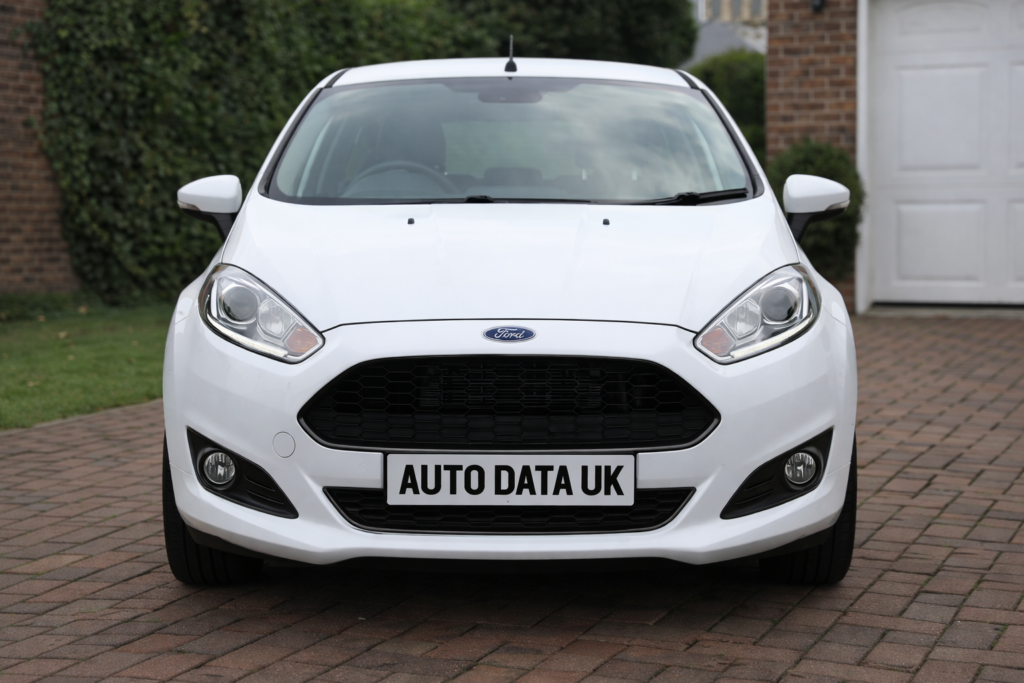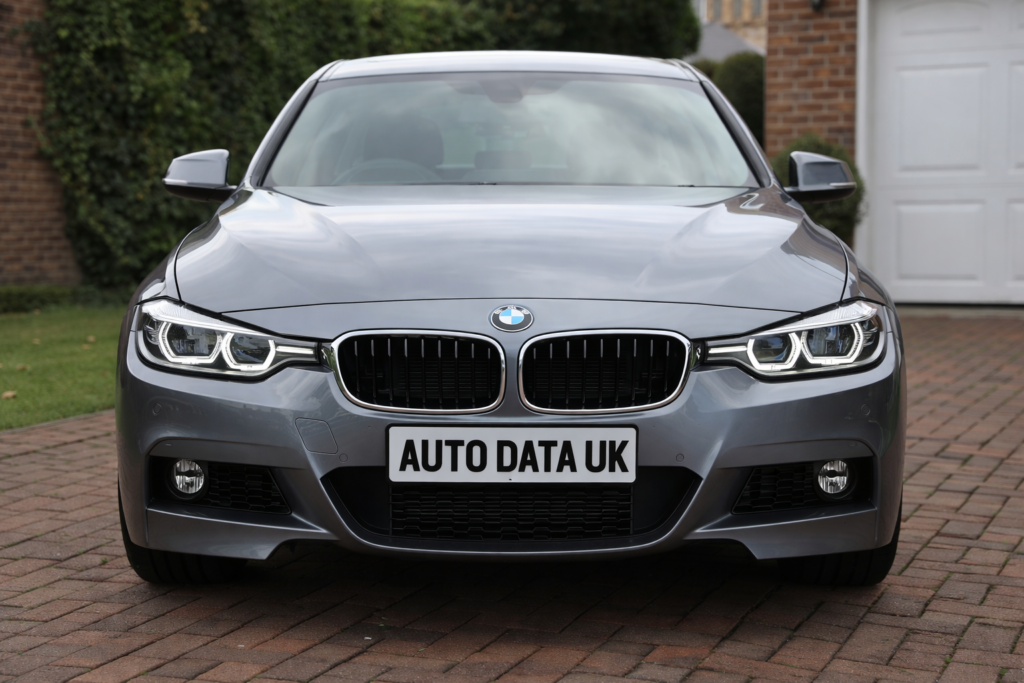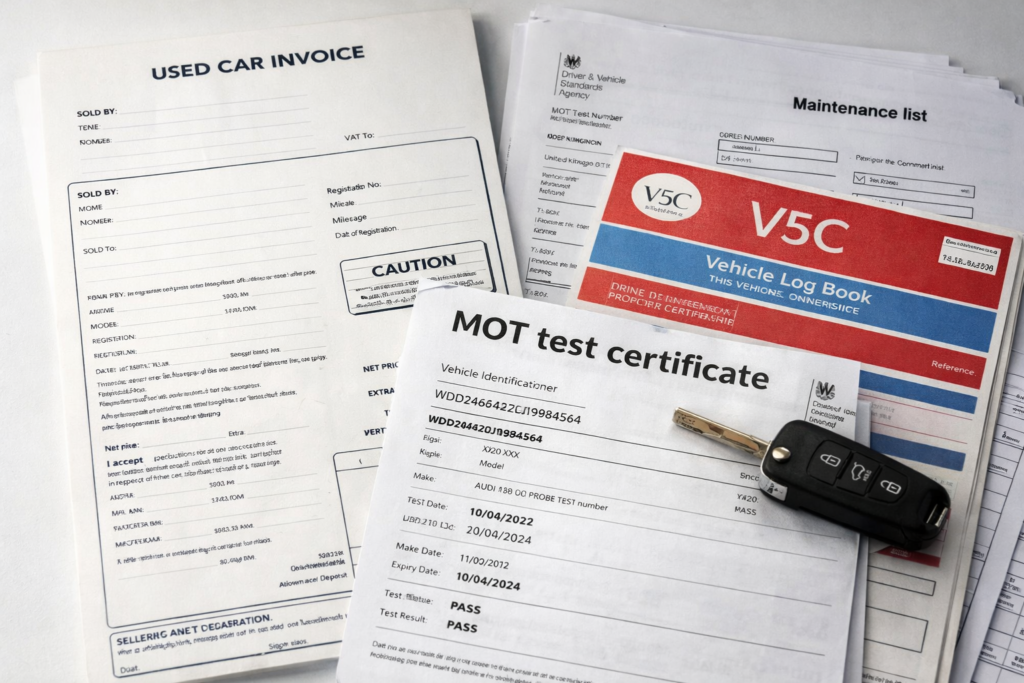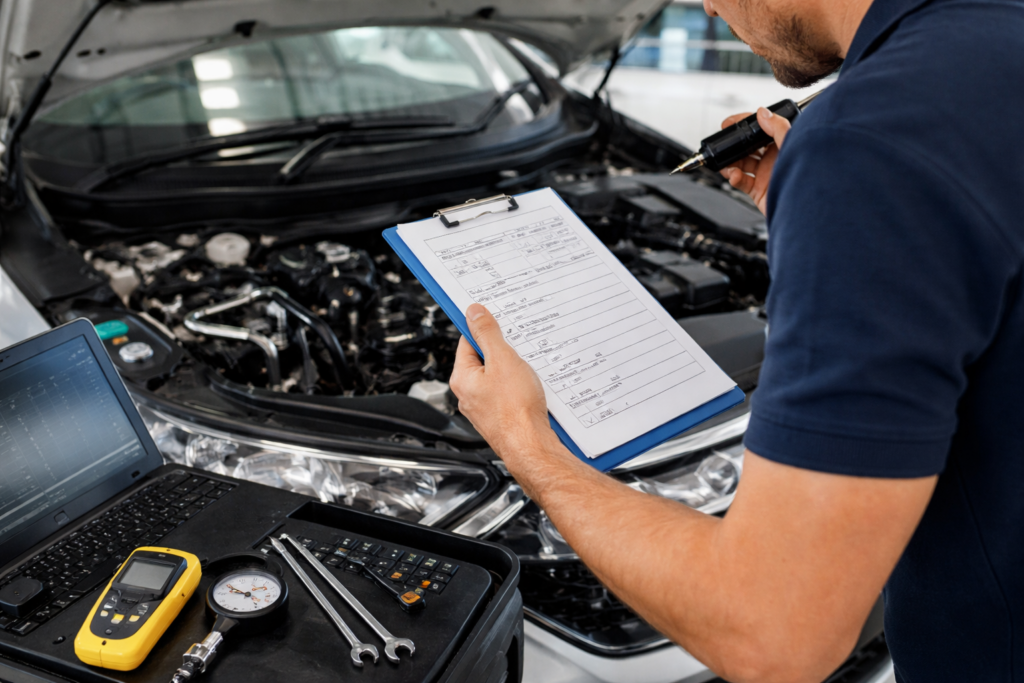
Where to Find the Right Car
Knowing where to search is the key to finding your perfect used car. Whether you’re buying from a local dealer, private seller, or reputable online platform, the goal is to find a trustworthy source that suits your needs, budget, and lifestyle.
1. Franchised and Independent Dealers
Franchised dealers specialise in one manufacturer and offer newer used cars, often with warranties and approved checks. Independent dealers stock a variety of makes and models and can provide great value, especially on older vehicles.
- Check the dealer’s online reviews and trading history.
- Ask for service records, MOT history, and any warranties provided.
- Verify the business is VAT registered and uses traceable payment methods.
- Check for “Approved Used” schemes — they often include breakdown cover and inspections.
- Compare the same car across multiple dealers to spot fair pricing.
- Avoid dealers unwilling to share a proper address or VAT number.
2. Buying Privately
Private sellers often offer lower prices but provide fewer guarantees. Always ensure:
- The car’s V5C logbook matches the seller’s name and address — guidance is available on the GOV.UK buying a vehicle page .
- You meet at the seller’s home address — not a car park or layby.
- You confirm identity and use a vehicle history check before parting with any money.
Remember: You don’t have the same rights as you do with a dealer, so inspect the vehicle carefully and ask direct questions.
- Meet in daylight and bring a friend for a second opinion.
- Never transfer money before you’ve seen the car and paperwork.
- Walk away from pressure tactics or unclear stories.
3. Online Car Marketplaces
Websites like Auto Trader, Motors.co.uk, and manufacturer-approved portals make it easy to compare prices nationwide. However, always verify the authenticity of the listing before making contact.
- Use filters for mileage, history, and owner count to narrow your search.
- Be cautious of prices that seem too low — they often are.
- Prefer listings with full service history, multiple images, and clear descriptions.
- Stick to reputable platforms that screen adverts for fraud.
- Check how long the car has been listed — new listings often sell fast.
- Avoid sellers asking for deposits before viewing.
4. Auctions and Trade Sales
Auctions can offer significant savings, but they’re best for experienced buyers. Cars are usually sold as seen, meaning there’s no comeback if things go wrong.
- Inspect the car carefully before bidding.
- Set a maximum limit and stick to it.
- Factor in auction fees and any transport costs.
- Bring a mechanic or knowledgeable friend if possible.
- Check the auction’s buyer fee and VAT policy before bidding.
- Read our guide on vehicle checks and inspection tips .
5. Word of Mouth and Local Ads
Don’t overlook local opportunities — friends, family, or community groups often advertise well-kept cars privately. You may even find vehicles sold locally that never make it online.
- Local listings often include long-term ownership cars with full histories.
- Ask people you trust before buying online — a good car can come from a recommendation.
- Still run a full history check , even if you know the seller.



